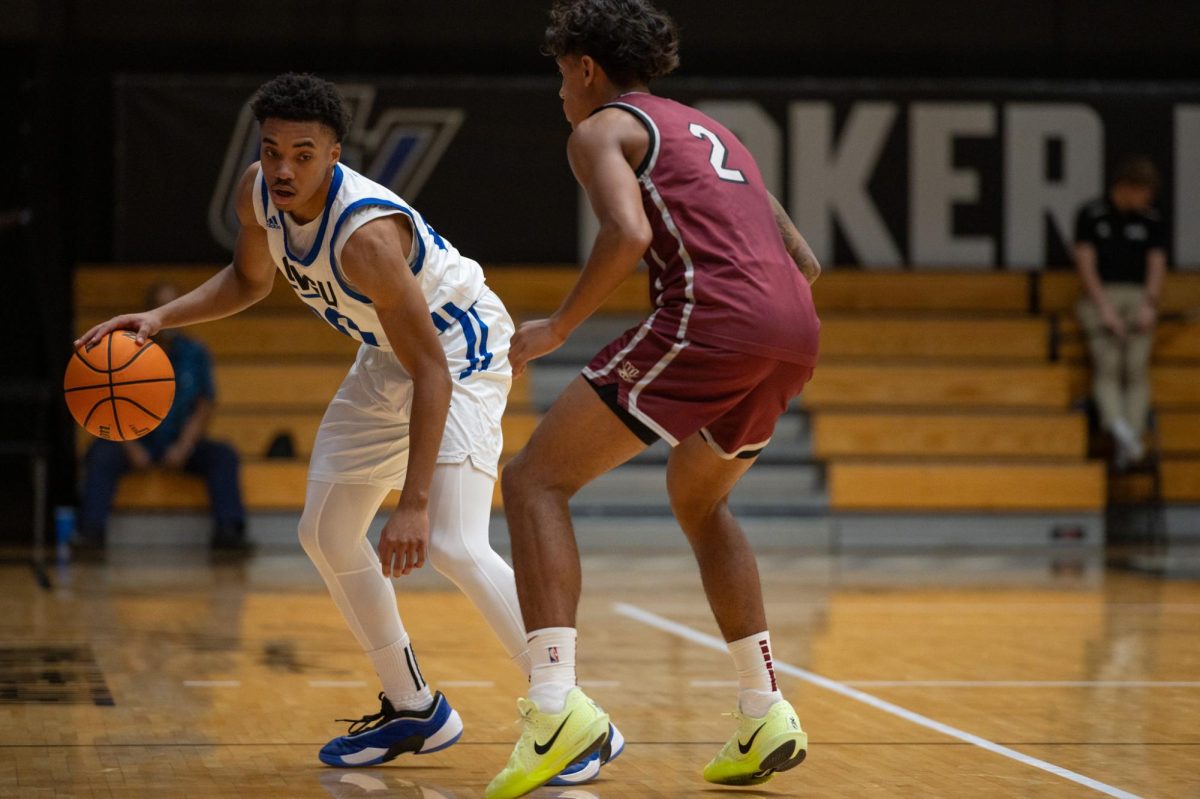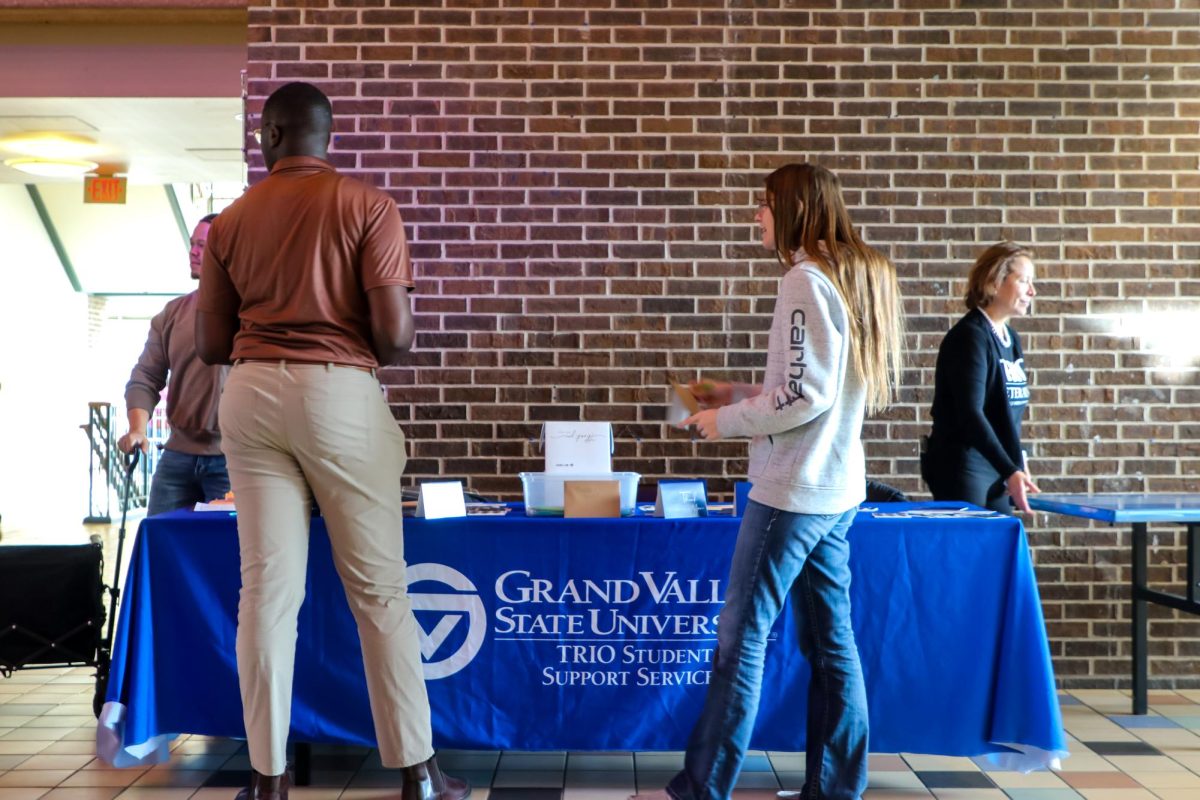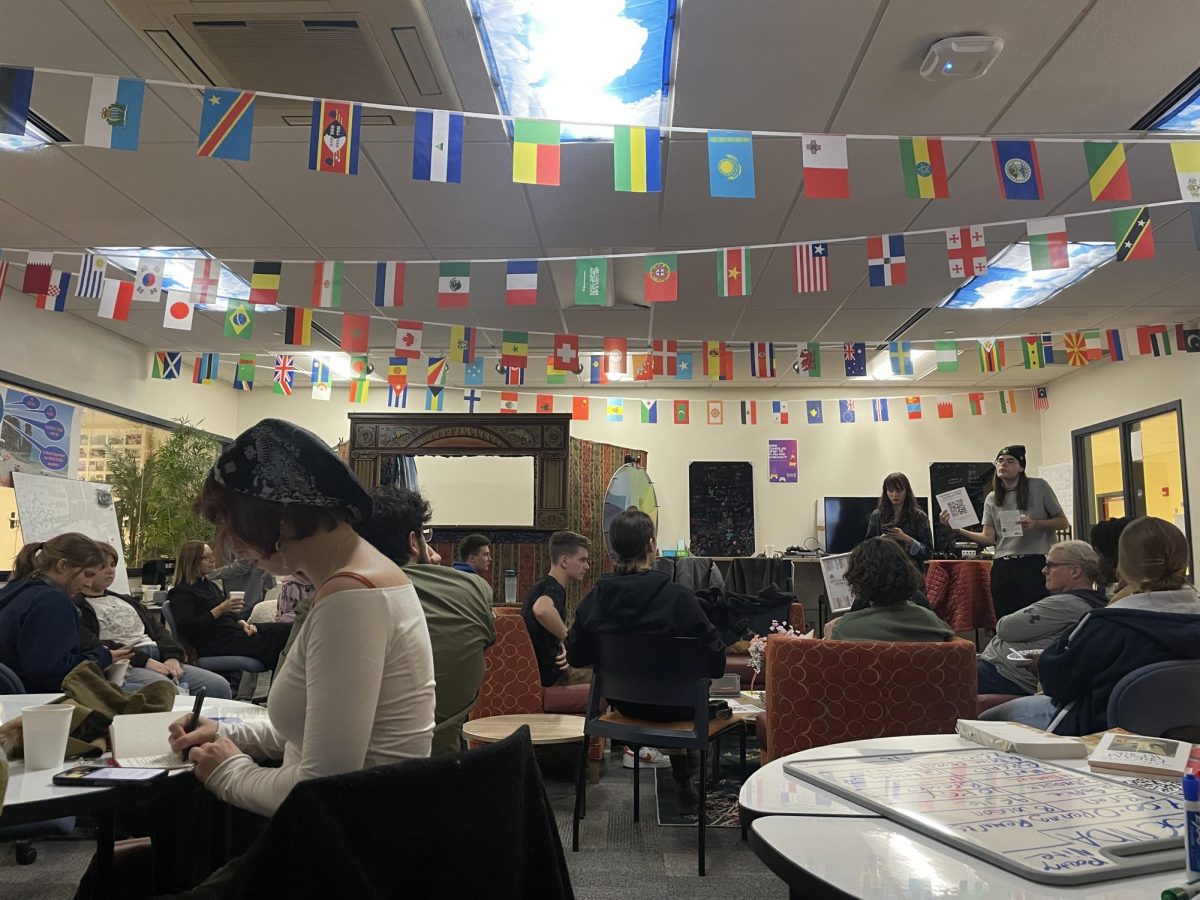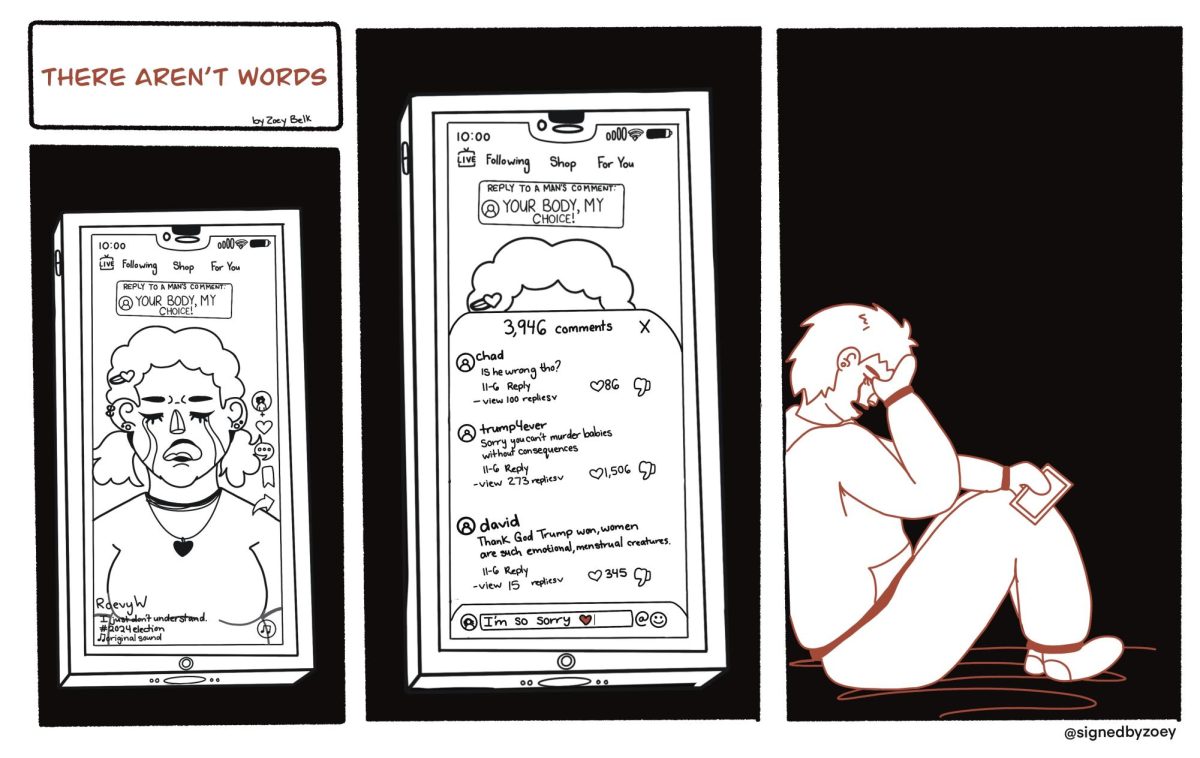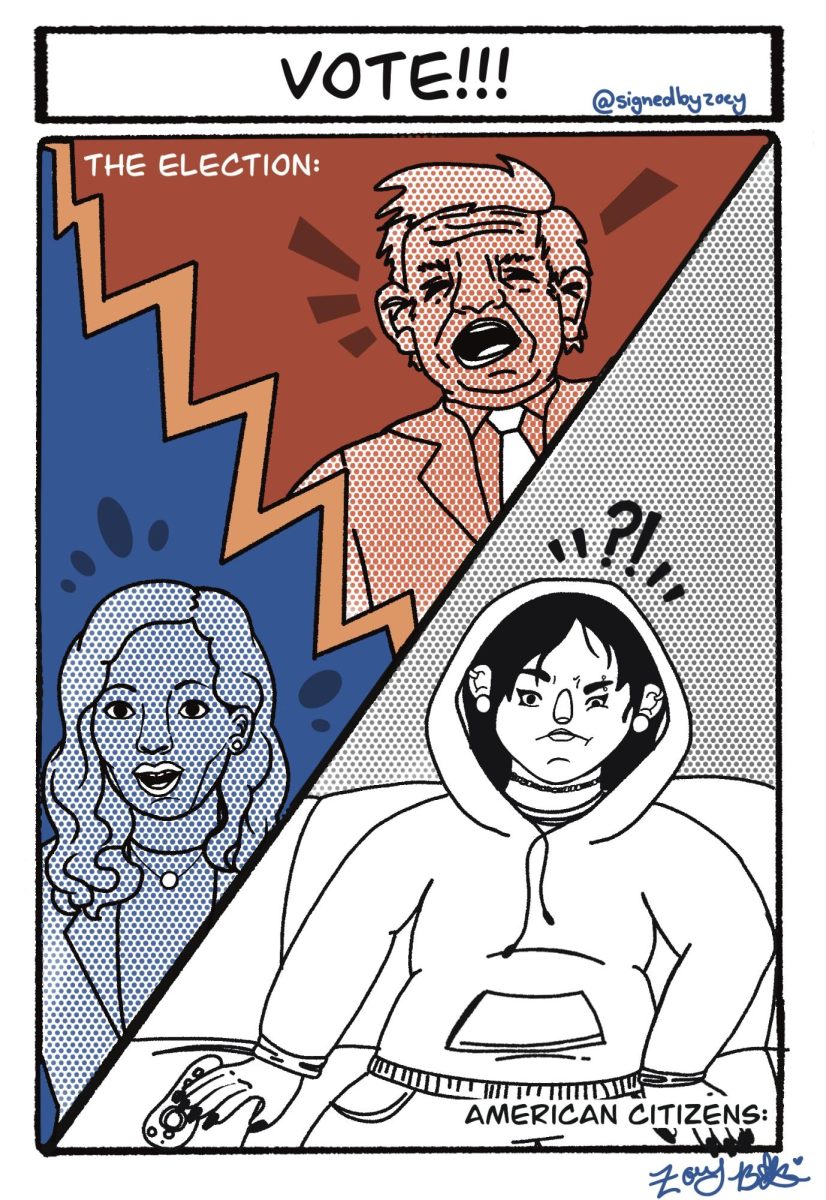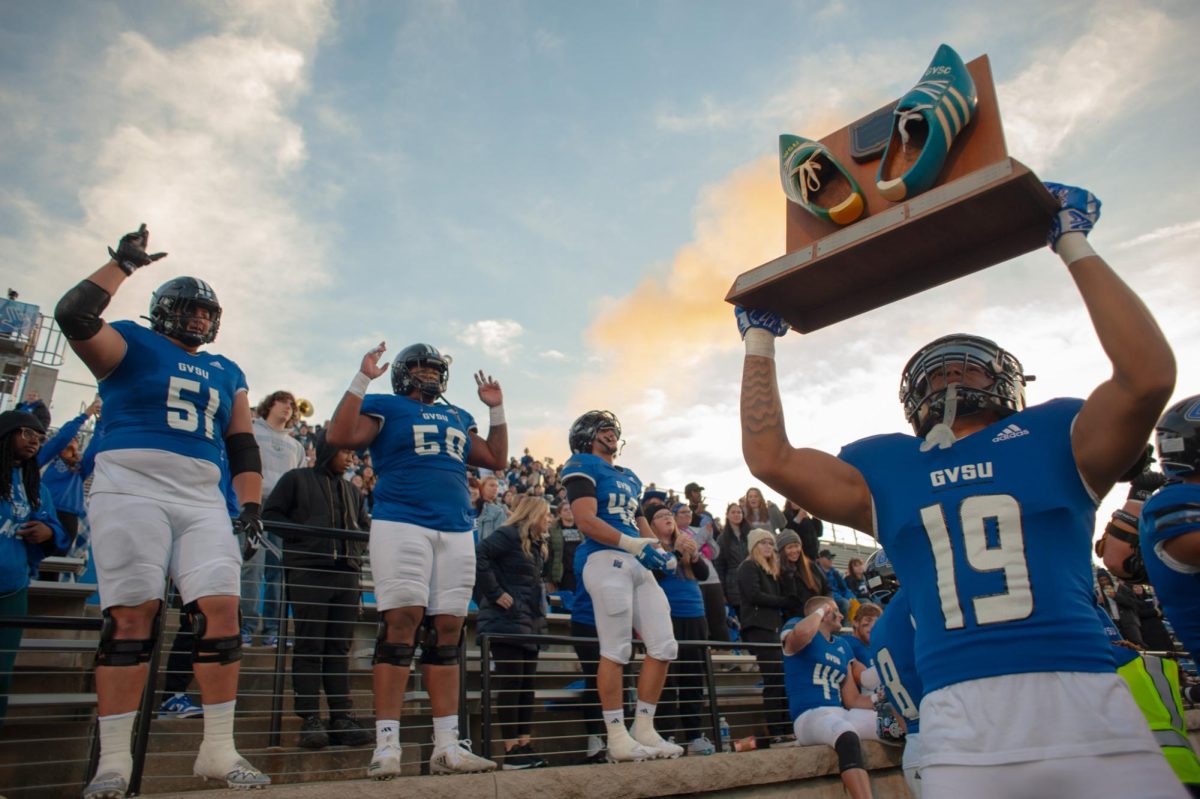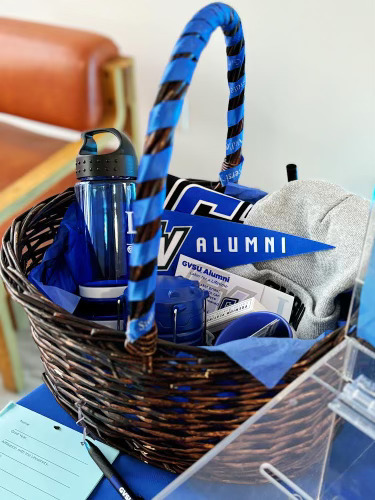Student radio seeks univeristy media integration

Tom Hardy, program director of The Whale
Dec 9, 2010
Len O’Kelly became advisor to Grand Valley State University’s student-run radio station, WCKS the Whale, at the beginning of the academic year — it is his first advising position after having been on-air in different markets for 23 years, and already he and his staff have begun work on several digital media innovations that should be ready as early as January 2011.
“Promotionally, we’re looking to reach more of the GVSU community through events and programming,” he said. “I’m also teaching a special topics class in the broadcasting department, CBR 380, ‘Introduction to Radio,’ and those students will become part of The Whale staff, receiving hands-on training.”
O’Kelly said he was glad to see that participation was way up from the Winter 2010 semester. Since then, the Whale staff have been working on the structure of the organization, making it more like a traditional radio station, which should allow for more people to get involved.
“Student radio represents, to me, unjaded and unbridled enthusiasm,” O’Kelly said. “After a long time in commercial radio, you begin to hear over and over again the reasons why not to do something. In student radio, it’s all about, ‘Why can’t we do something?’”
The Whale’s student program director Tom Hardy, who has been a DJ since the Fall 2007 semester, said he has been talking with assistant general manager of WGVU and GVSU professor Ken Koble, who recently introduced Hardy to the idea of convergence in the media industry. Hardy said this concerns primarily the integration of multiple media outlets into a conglomerate that benefits all parties.
“You’ll see us working in tandem with the Lanthorn and GVTV as well as the newly created Media Advisory Board with an ultimate goal of connecting the students with the issues that matter to them – news, the arts and student opinion,” Hardy said. “2011 will bring many challenges, but I intend for it to be the biggest year of growth in the station’s history.”
With the current trend in broadcast shifting to availability on the Internet, Hardy said the Whale and company have already acknowledged this dichotomy and plan to make sure the Whale retains its relevance and importance.
“Content and listenership is moving to the online sector,” he said. “As an online radio station, we foresee this rising tide and will be there to provide a service which is growing both scarce and more valuable – an accessible, trustworthy, and engaging source of media for students of the GVSU community.”
With the advent of new media technologies and open access information sharing, the current media market has change drastically since the early 2000s. In recent years, the U.S. free-market economy has allowed the merger of capital-heavy media conglomerates such as Yahoo!, NBC, Disney, Google, General Electric and others, creating an oligarchy of dominating media outlets. While WCKS may not compete directly with such elite-tier companies, such companies provide a model from which WCKS can study and in some cases learn from, avoiding mistakes in content and production technique.
“With competition high in every market, radio stations will have to adapt swiftly to emerging technologies and, for once, listen to their audience while still remaining attractive enough to be continued to be listened to,” Hardy said. “The Whale is dedicated to that mission and will continue to be an independent student-run station that caters to the tastes and opinions of those that are sharing in the experience of college life.”
Hardy continues to hold great deal of value in what radio offers in terms of information sharing. Its online steam, he said, only aids The Whale’s mission to address those needs and provide a platform for students to add their own voices to the mix.
O’Kelly said content will always remain king, and if radio stations plan on continuing to be a viable source of information in the future, their willingness to adapt to new technology will certainly play a role.
“Radio will continue to have a place provided that those who are in charge of its content are providing something worth listening to,” he said. “The more cookie-cutter corporate radio becomes, the less valuable I think radio becomes.”
Broadcast radio will be more dependent on its web streams than ever before, O’Kelly said. As Wi-Fi becomes available in cars, radio will have to make its streams easy to access, deliver compelling content and keep it free.
Currently The Whale works with an annual budget of $2,000 from a tri-split $56,000 with GVTV and the Lanthorn as allocated by the Student Senate Appropriations Committee and the Media Advisory Board.
“I’m in full support in trying to move the station from a young stage to a professional stage,” said Media Advisroy Board head Bob Stoll. “The station has been in their space for two years now – that was the biggest issue initially. Len (O’Kelly) will be a great resource to help radio and television move up a couple notches.”
O’Kelly said many dedicated students offer great shows that everyone should check out.
“As the quality of commercial radio in West Michigan declines, the quality of alternative offerings like The Whale increases,” he said. “I can’t wait until we pass them going the other way.”













